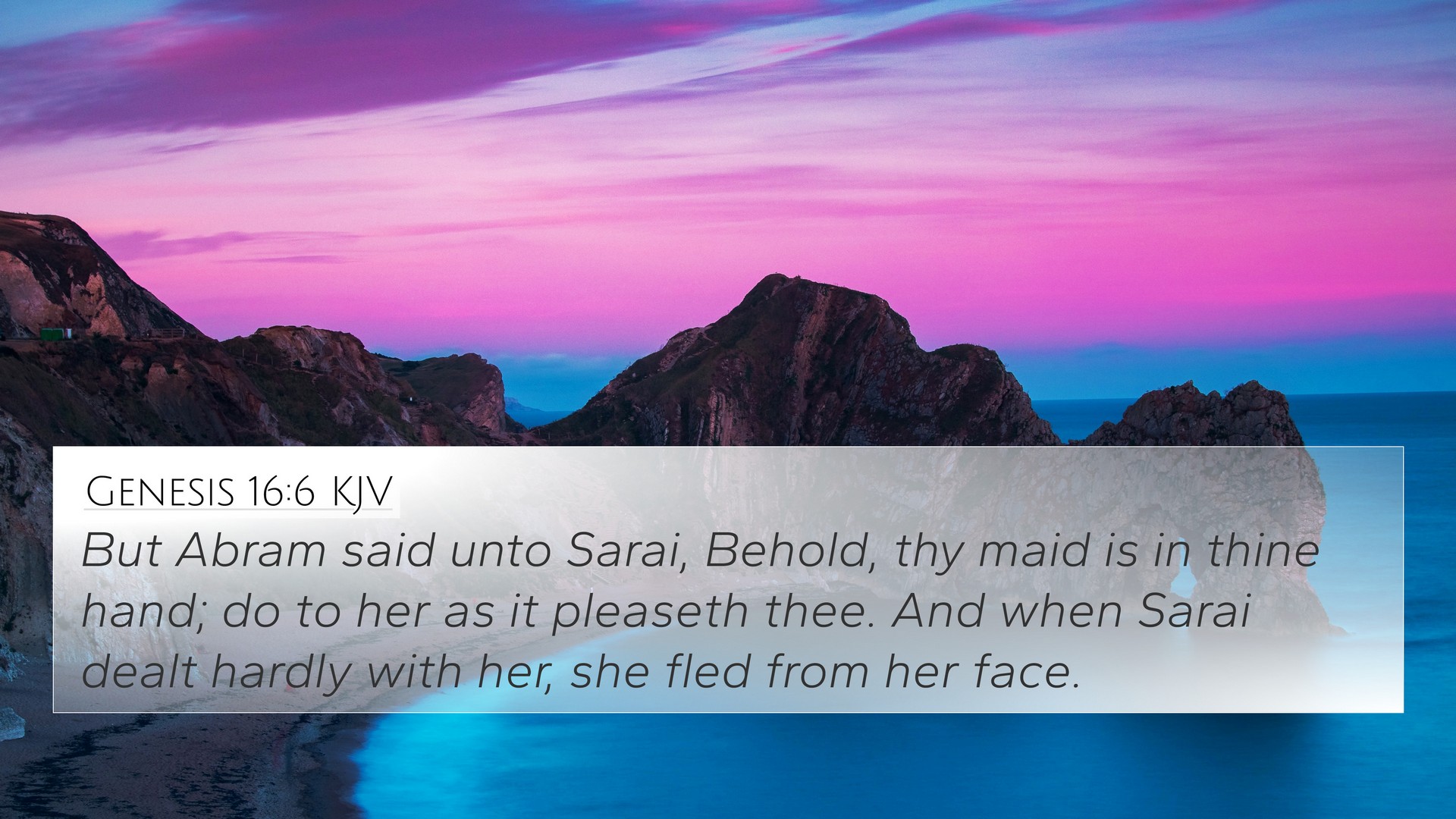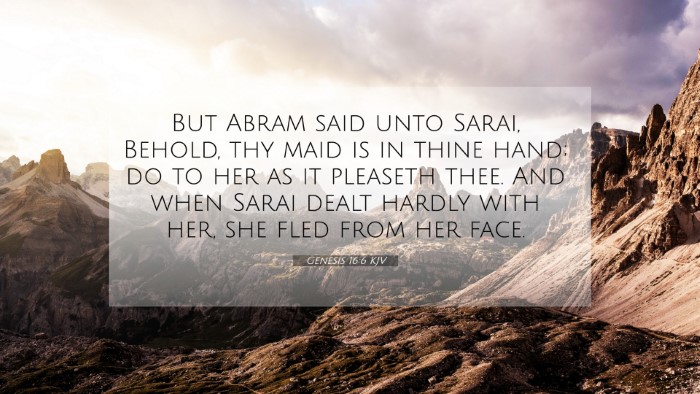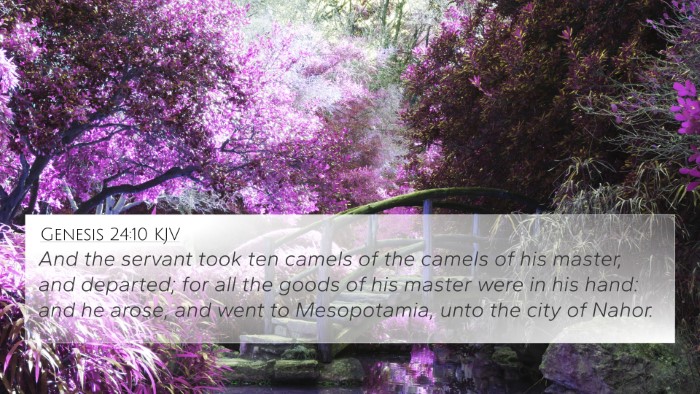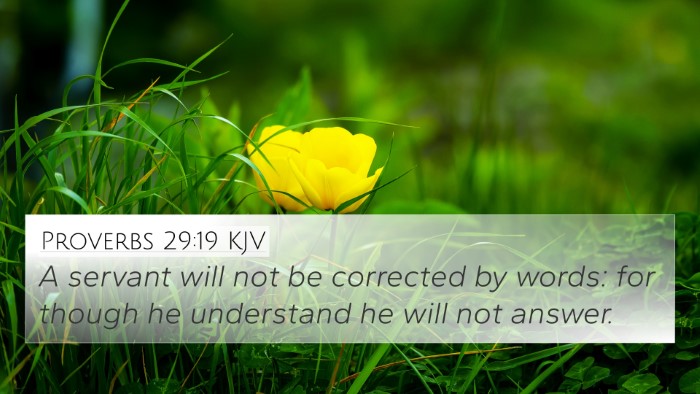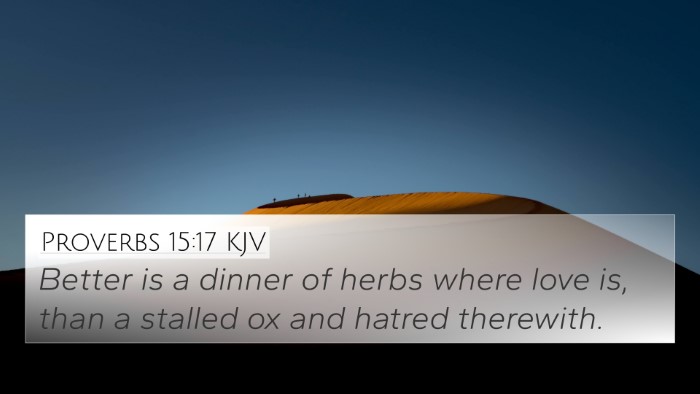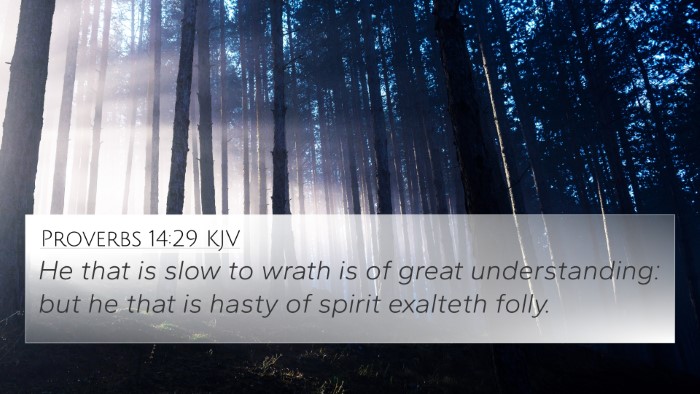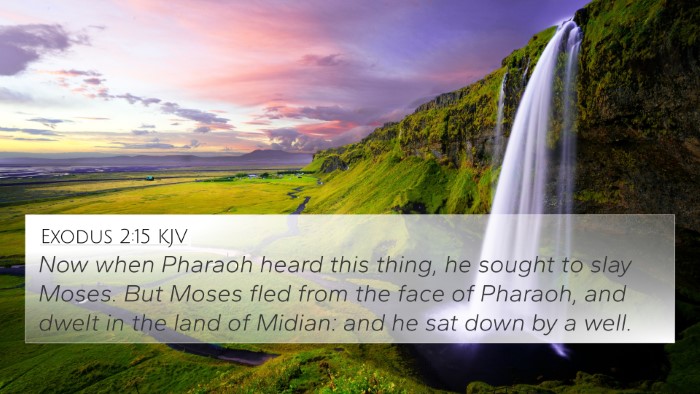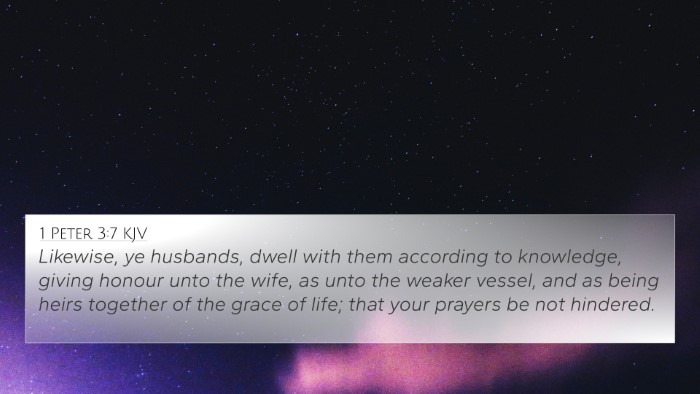Understanding Genesis 16:6
Genesis 16:6 states, "But Abram said unto Sarai, Behold, thy maid is in thy hand; do to her as it pleaseth thee. And when Sarai dealt hardly with her, she fled from her face." This verse captures a pivotal moment in the narrative of Abram, Sarai, and Hagar, revealing complex themes of authority, human failure, and divine intervention.
Verse Context and Overview
This verse occurs in the context of Sarai's decision to use Hagar, her Egyptian maid, as a surrogate to bear a child due to her own barrenness. Here, we see Abram's reluctant acquiescence to Sarai's plan, highlighting the dynamics of power and the emotional turmoil resulting from the situation.
Commentary Insights
Matthew Henry's Commentary
Matthew Henry explains that Abram's words to Sarai acknowledge the autonomy of Hagar, yet they also demonstrate a lack of accountability for the ensuing conflict. The statement encapsulates a moment of surrender to human desires rather than divine promise.
- Authority and Responsibility: The verse illustrates the negotiation of power within family dynamics.
- Divine Promise vs. Human Action: Henry emphasizes that instead of waiting for God's promise, Abram and Sarai took matters into their own hands.
Albert Barnes' Notes
Barnes highlights that Abram's response to Sarai reflects a significant moment of passive leadership. Instead of asserting moral and spiritual guidance, he allows Sarai's harsh treatment of Hagar to unfold, which serves as a precursor to the difficulties that ensue.
- Conflict Arising: Barnes notes that Hagar's fleeing points to the struggles of being caught in a situation of human oversight.
- The Role of the Divine: He underlines how this narrative sets up the need for divine intervention in human matters.
Adam Clarke's Commentary
Adam Clarke provides additional layers to the narrative, discussing the cultural implications of Sarai's actions and the suffering experienced by Hagar. Clarke emphasizes that the text reveals more than just personal conflict; it illustrates broader themes of oppression and the consequences of failing to trust in God’s timing.
- Ethical Dimensions: Clarke raises the ethical concerns surrounding Sarai’s treatment of Hagar.
- Foreshadowing Future Conflict: He notes that the issues in this relationship prefigure further problems in the lineage of Abram's descendants.
Thematic Connections
This verse and its surrounding narrative raise profound questions regarding relationships, faith, and human agency. Each commentary presents insights that invite deeper reflection on the dynamics at play.
Bible Verse Cross-References
To better understand Genesis 16:6, it is vital to explore related scripture. Here are a few related verses that reveal connections between Bible verses:
- Genesis 21:9-10: This passage illustrates the continued conflict resulting from the decisions in Genesis 16.
- Galatians 4:22-31: Paul uses the story of Abram, Sarai, and Hagar as an allegory for two covenants.
- 1 Peter 3:7: This verse addresses the importance of understanding and honor in marital relationships, contrasting with the dynamics exhibited in Genesis 16.
- Romans 4:20-21: This text emphasizes Abram's faith in God's promises, highlighting the mistakes made in the previous chapter.
- James 1:15: This verse speaks on the consequences of desires, paralleling how human actions lead to sin and strife.
- Proverbs 14:12: This proverb warns that there is a way that seems right to man, but it leads to death, connecting to Abram and Sarai’s actions.
- Exodus 21:26-27: These laws touch upon the treatment of servants, which can be seen in Sarai's harsh treatment of Hagar.
SEO Keywords Utilization
By engaging with the rich tapestry of related scripture, one can deepen their understanding through tools for Bible cross-referencing, using resources such as a Bible concordance or a Bible cross-reference guide. This preparation allows for a greater comparative study of related themes and verses, highlighting the importance of inter-Biblical dialogue.
Conclusion
Genesis 16:6 is not merely a historical account but a lesson in the complexities of human relationships and the consequences of stepping outside of divine guidance. The combined insights of public domain commentaries provide a comprehensive understanding of this pivotal moment in Biblical history.
